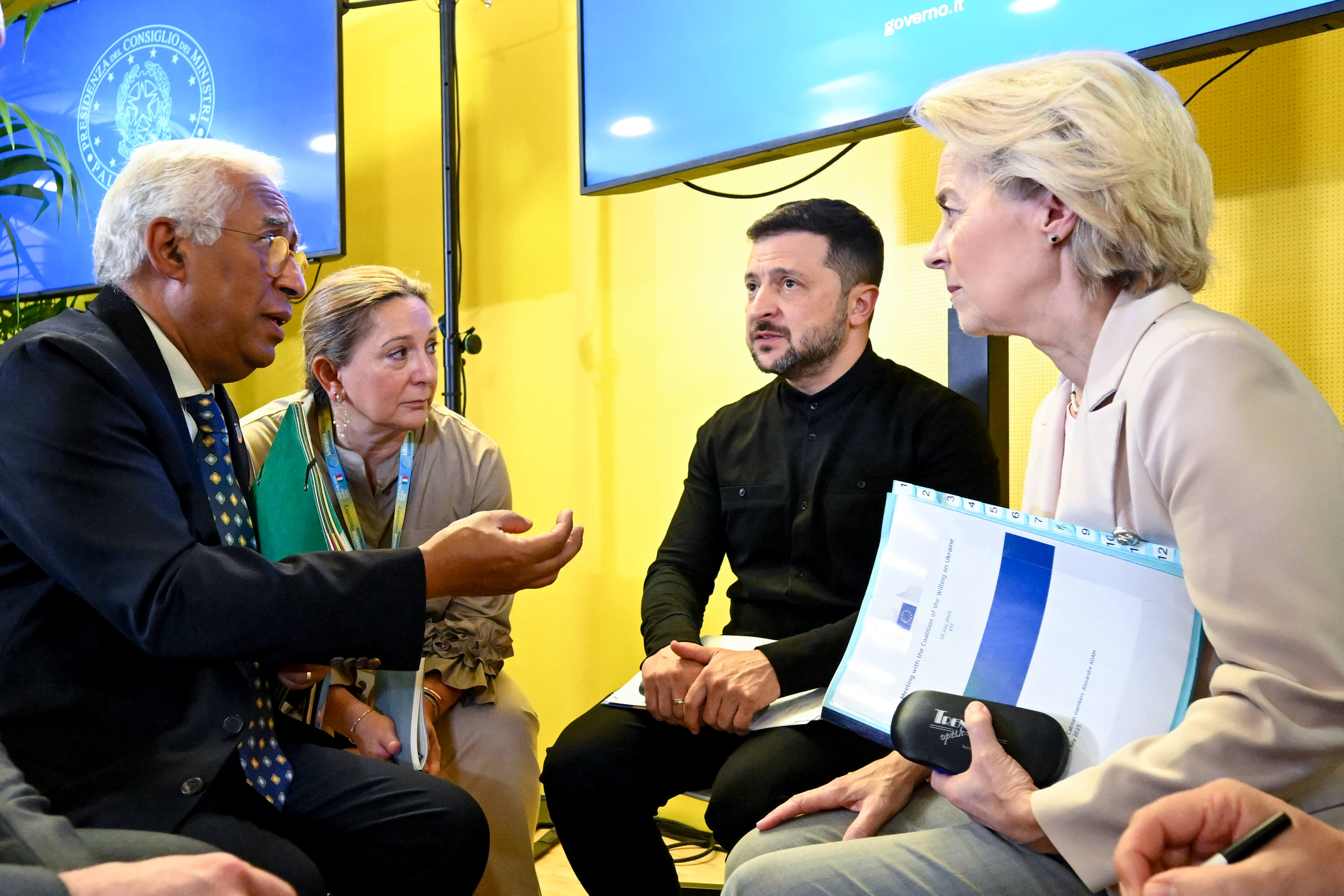At a reconstruction conference in Rome, Ukraine’s video re-enactment of the war at the start elicited a subtle sigh of fatigue from the audience. Even Ukrainian delegates, vying for Western attention and support, quietly admitted on the sidelines that the Kyiv messaging felt outdated.
This sentiment teetered between cynicism and a yearning to inject fresh optimism into the discourse.
Whether one agrees with this perspective or not, the attendance spoke volumes. By around 3 p.m., after the leaders’ speeches, two-thirds of the seats in the main conference hall stood empty.
The West isn’t weary of the war itself but of the lack of actionable solutions. This explains why numerous side events in Rome focused on practical steps forward. And in general, the conversation has largely shifted from supporting the war effort to ensuring Ukraine’s economic survival.
“Think of the role the Marshall Plan played in rebuilding and transforming Europe. That’s why Europe has enjoyed peace and economic growth for so many decades. And now, we have the opportunity to spark a new wave of progress,” said President of Ukraine Volodymyr Zelenskyy in his speech in Rome.
Europe's commitment to post-war reconstruction
Over €10 billion pledged to be mobilised in new investment, a new EU equity fund launched, and commitments from countries like Italy, Germany, France, and the U.K. to invest in Ukraine’s long-term reconstruction. This showed general commitment to Ukraine’s future but established strict conditions: all of this is connected to post-war reconstruction.
“…that’s the problem. Recovery cannot begin if the war hasn’t ended, says Svitlana Kovalchuk, executive director at Yalta European Strategy, which has been building up Western support for Ukraine for many years. – Yet, many in Rome spoke as if Ukraine was already in a post-war phase, sidelining the daily reality of missile strikes, blackouts, and frontline battles.”
Despite BlackRock, a leading global investment firm, announcing before the Rome conference that it was pausing negotiations to enter Ukraine, European Commission President Ursula von der Leyen’s speech shifted the mood significantly.
Despite Ukraine's ageing and heavily damaged Soviet-era infrastructure, its still sizable population and financial backing from the EU make it an attractive hub for energy investment
"[It will be] the largest equity fund globally to support reconstruction. It will, together with the private sector, kickstart investment in energy, transportation, critical raw materials, dual-use industries," von der Leyen said, announcing the new fund in Rome.
This financial commitment was warmly received by major corporations, serving as another indirect push to seek solutions to the ongoing war.
“This was my third Ukraine Recovery Conference, and this one was by far the most substantial,” Geoffrey Pyatt, a top-ranking U.S. diplomat and former ambassador to Ukraine, told me. – “The participation was huge—over 8000 people and a number of top-level American executives. The Atlantic Council and U.S.-Ukraine Business Council dinner was particularly substantive, featuring all the major energy and critical minerals companies engaged in Ukraine, as well as top-level government participation, reflecting the eagerness on both sides to flesh out the U.S.-Ukraine reconstruction and recovery agreement—aka the critical minerals deal.”
The energy sector has proven particularly promising. Despite Ukraine's ageing and heavily damaged Soviet-era infrastructure, its still sizable population and financial backing from the EU make it an attractive hub for energy investment. The industry is adeptly turning challenges into opportunities, much like making lemonade from a bitter lemon.
Promises risk turning into paperwork - no security, no recovery
Another big news came from the U.K. and France’s announcement of a future 50,000-strong multinational force, which was a nod to security—again only after a ceasefire. This should include regenerating Ukraine’s land forces by providing logistics, armaments, and training expertise.
The UK government offered a vision of securing Ukraine’s skies through a Coalition of the Willing-led air initiative, operating alongside Ukraine’s Air Force to ensure safe airspace and resuming international air travel.
 As politicians, diplomats, and experts convened in Rome to discuss post-war Ukraine, Russian forces escalated their offensive
As politicians, diplomats, and experts convened in Rome to discuss post-war Ukraine, Russian forces escalated their offensive
Additionally, the promises touched on enhancing maritime security by reinforcing the Black Sea Task Force—comprising Turkey, Romania, and Bulgaria—with specialised personnel to accelerate mine clearance and guarantee safe access for vessels transiting to and from Ukrainian ports.
However, a critical oversight remains: Russia’s potential reaction. Past proposals for ground deployments have faltered due to concerns over escalation, highlighting the need for careful diplomatic navigation to advance this ambitious plan.
The behind-the-scenes negotiations starkly contrasted with public statements. While public speeches reiterated support for Ukrainian democracy, private discussions increasingly highlighted concerns about its erosion, with diminishing focus on reforms, even the rule of law—critical for effective funds allocation.
As politicians, diplomats, and experts convened in Rome to discuss post-war Ukraine, Russian forces escalated their offensive, advancing in the Donetsk, Kharkiv, and Dnipropetrovsk regions while targeting energy infrastructure, including in western Ukraine.
Despite numerous panels and discussions on Ukraine’s future, no one presented a credible vision for how or when the war might end. Kovalchuk concluded:
“Rome delivered promises. But without immediate and sustained action on security—both military and institutional—those promises risk turning into paperwork. No security, no recovery.”